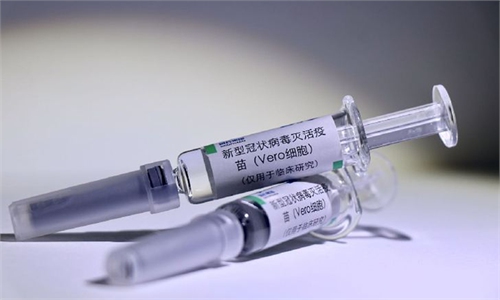https://youtu.be/SHi2RjWP_zo
https://youtu.be/-XW9_1fXmKE
https://youtu.be/-XW9_1fXmKE
 |
| A handout photo provided by the Russian Direct Investment Fund (RDIF) shows samples of a vaccine against the coronavirus disease (COVID-19) developed by the Gamaleya Research Institute of Epidemiology and Microbiology, in Moscow, Russia August 6, 2020. Picture taken August 6, 2020. |
PETALING JAYA: The announcement of a Covid-19 vaccine in Russia – dubbed Sputnik V – that will help end the pandemic soon is still a “distant reality”, say local public health experts.
Russia announced on Tuesday it will approve a Covid-19 vaccine after less than two months of human testing and hopes to begin production in September with plans to vaccinate its medical staff immediately afterwards.
The approval was made before a phase three trial which would involve thousands of participants and considered essential before regulatory approval is made.
Public health expert Datuk Dr Zainal Ariffin Omar criticised the approval of the Covid-19 vaccine in Russia as non-ethical for its lack of full clinical trials and scientific data.
“The scientific community is worried as basically, a vaccine will need to undergo full clinical trials to identify its efficacy and side effects.
“So, it is premature for Russia to be releasing the vaccine now without conducting large-scale trials that would produce data to show whether it works, ” he said.
Public health medicine specialist of Universiti Malaya Medical Centre, Associate Professor Dr Rafdzah Ahmad Zaki said for any available vaccines, the effectiveness of the vaccine needs to be evaluated before it can be considered.
“With any new vaccine, there will be a committee to discuss and decide on the evidence of whether the vaccine works or not, ” she said.
The head of the Centre for Epidemiology and Evidence-Based Practice noted that any risk or benefit will be balanced before a vaccine is approved, such as whether the tested population is similar to Malaysia’s community and the kind of resources needed to implement the vaccine.
Dr Zainal, who is Malaysian Public Health Physicians’ Association president, cited an example of a dengue vaccination which was approved by the World Health Organisation (WHO). But even then, it was later found to have caused a lot of deaths and />complications.
“Luckily after evaluation, we did not implement the use of the dengue vaccination for our country.
“That is why the scientific and medical community is very cautious of approving a vaccine for the community because we don’t want to be wrong for using a premature product, ” he said.
Dr Zainal expects a vaccine to be made available in the country only by the middle or end of 2021.
“Any vaccine will help the situation later on. But at the moment, we don’t have the capability of developing new vaccines. But we can be involved in any trials or collaborate with international agencies for trial purposes, ” he said.
Indonesia said on Tuesday it would launch a Phase 3 human trials of a vaccine candidate from China’s Sinovac Biotech.
According to the WHO, there are currently 139 vaccines in development and 26 have been undergoing human trials since July 31. Out of the 165 vaccines, six are reaching Phase 3, which is the last step before regulatory approval and will involve large numbers of human testing.
Sinovac’s vaccine, named CoronaVac, is already being tested on 9,000 Brazilian health workers.
Malaysian Medical Association president Dr N. Ganabaskaran said the Covid-19 pandemic will go on for years even if vaccines are readily available.
“Even if vaccines are available, what about poor countries? Not all countries can afford the vaccine.
“There are vaccines being developed, but available vaccines will go to the rich countries first and it may take many years before we can overcome Covid-19, ” he said.
Source link
Related:
China likely to take lead along Russia in accelerated global vaccine race: experts
The battlefield of a global vaccine race has seemingly transferred from research and development to the market after Russia announced its approval of the world's first COVID-19 vaccine on Tuesday, soon after which the US announced to purchase another 100 million doses of a domestic candidate, revealing the Trump administration's anxiety over Russia's move.Covid'19 Vaccine for the world started mass produced in China on 8/8/20
8月8日!中国传来大喜讯!疫苗开始大规模生产,准备9月份分发全世界,拟定第一批名单,不是开玩笑,特朗普最怕的事发生!https://youtu.be/JoXhQIGmtBs
Putin hails 'Sputnik vaccine'
Russian President Vladimir Putin said on Tuesday that Russia had become the first country to grant regulatory approval to a COVID-19 vaccine after less than two months of human testing, a move Moscow likened to its success in the Cold War-era space race.Related posts:
China's Covid-19 vaccine will be available for all, could be ready for public use early next year

China leads in coronavirus vaccine clinicals to combat Covid-19

















